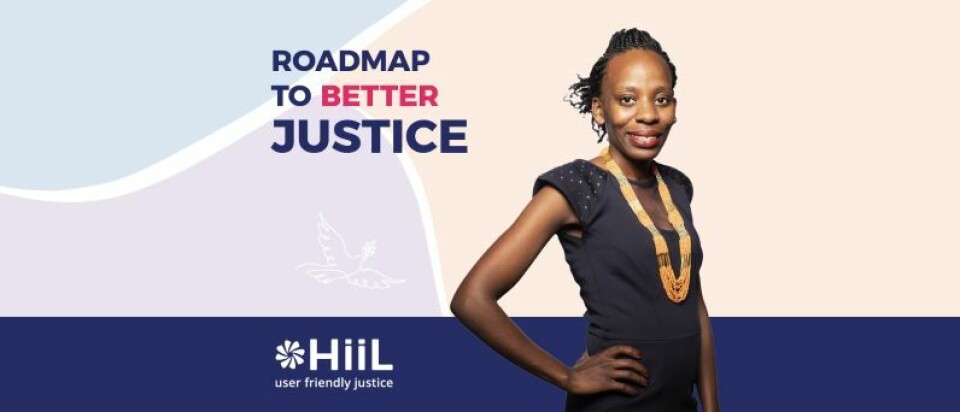Copyright : Re-publication of this article is authorised only in the following circumstances; the writer and Africa Legal are both recognised as the author and the website address www.africa-legal.com and original article link are back linked. Re-publication without both must be preauthorised by contacting editor@africa-legal.com
Roadmap to better justice

The Hague Institute for Innovation of Law (HiiL) is working hard to deliver user-friendly justice to Africa. Rachael Ampaire Mishambi-Wamahe, Programme Manager for HiiL, shared with Africa Legal how their work in Uganda serves as a roadmap for other African countries.
In Uganda there seems to be a sense that “the system” works only for those who can afford to pay for justice or who are connected. Data gathered in HiiL’s Justice Needs and Satisfaction surveys indicate a gap in knowledge, affordability and access. However, there appears to be an urgency now among justice leaders, stakeholders and innovators to improve access to justice for all.
“People-centred justice in Uganda has come a long way,” said Mishambi-Wamahe. “Our work has reinforced what many on the ground already knew and experienced: formal institutions were not delivering justice that was affordable, accessible and easy to understand for the average Ugandan citizen. A growing disconnect between what the formal system stands for and provides, and what people need in order to get on with their daily lives when a dispute arises, fuels the urgency for change.”
One of the ways HiiL aims to bring justice to the people of Uganda is through their community justice clinics (CJC) which will work with local informal justice enforcers such as the local council courts, cultural leaders and land committees. Mishambi-Wamahe explained that the clinics will enhance the capacity of existing community justice providers and improve their resolution rates by strengthening their accessibility, legitimacy and ability to deliver fair outcomes.
In the past HiiL has maintained a good working relationship with Uganda’s judiciary and the Governance and Security Programme (formerly the Justice, Law and Order Sector), and Mishambi-Wamahe believes that dialogues held with the justice leadership have delivered promising results. “Clear guidance was given for the first Justice Innovation Lab. We aim to secure funding for the pilot phase which can then address issues such as court backlog, infrastructure, and improving access to justice for the user,” she said.
She highlighted the importance of the formal and informal justice systems working together as they are complementary. “The Governance and Security Programme has emphasised the role of these informal justice mechanisms in enhancing access to justice at community level and in reducing the case backlog that would otherwise congest the formal justice system.”
Informal systems are the first entry point of contact for users of the Uganda justice system, and 80% of Ugandans rely upon community justice providers to solve their justice problems. While these community justice providers are better placed to understand the justice problems of the people in those communities and enjoy a high level of trust, they also face numerous challenges which can prevent them from fulfilling their mandate.
These challenges include limited knowledge, resource constraints, lack of record-keeping, and a general lack of systems capacity. However, HiiL’s programmes are working towards changing this. “We see the importance of strengthening these informal justice systems to ensure that when they’re faced with difficult matters like land ownership issues, for instance, they can ably dispense justice to the users,” said Mishambi-Wamahe. “By strengthening these systems, there is a greater chance of increasing access to justice.”
HiiL’s work in Uganda has far-reaching impacts because it serves as a roadmap to improve access to justice in other East African countries too. Mishambi-Wamahe confirmed that numerous other African countries where HiiL works express a similar enthusiasm for ensuring access to justice for the people. This is evident in their approach to taking on new laws and policies, as well as their openness to innovative ideas that foster justice.
To join Africa Legal's mailing list please click here
